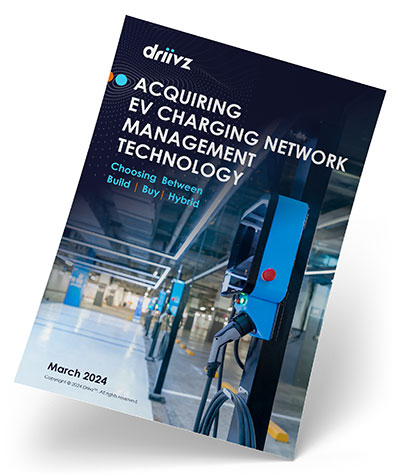One of the highest impact strategies for reducing emissions and mitigating climate change is transportation electrification, especially via privately owned or shared electric vehicles. Deloitte projects 31.1 million EVs will be sold by 2030.
The business opportunities to provide EV charging services for those vehicles are growing. Analysts from the European Federation for Transport & Environment say that the present 185,000 EV charging points will become 3 million in 10 years.
As EV charging requires a “charge anywhere” environment – unlike traditional internal combustion engine vehicles that can only refuel at gas stations – the EV charging infrastructure is expanding to where consumers are.
Hosts in commercial locations and industrial buildings, e.g.: shopping malls, office buildings, hotel chains, etc., are playing an increasing role in eMobility, operating and managing charge points and offering EV charging services. Hosting EV charging points not only generates new revenue streams, but it also strengthens brands as “green leaders.”
Hosts already have the real estate and can seize the opportunity to offer EV charging. To optimize EV charging operations and enhance EV driver satisfaction, hosts may consider these five factors:
- Creating seamless charging experiences for EV drivers
- Delivering fast and proactive issue resolution
- Ensuring comprehensive billing and payments management
- Leveraging insights-driven analytics and reporting
- Benefiting from innovative smart energy management

Delivering Seamless EV Charging Experience
Hosts can ensure a positive driver experience with intuitive, easy-to-use mobile apps and driver portals, ultimately increasing driver satisfaction and loyalty. A smooth EV charging journey is key, with easy signup, flexible account and driver management, and the ability to assist drivers with remote authentication and charging sessions.
With the self-service app, EV drivers can easily find available chargers and make reservations using the integrated navigation tools that take them directly to the hosts’ charging points. They can also manage their payment options. Real-time notifications keep them updated with charging start and end alerts, reservation information, and more.
Retail sites are one of the key locations for host charging, so they may want to consider offering coupons for charging or discounts with their retail tenants to keep EV owners busy while they charge – and enhance the bottom line.
Hosts can make it even easier for their clients by offering eRoaming, allowing drivers to charge under a single billing umbrella at any charge point across multiple networks and countries.
Fast and proactive issue resolution
Customers demand 24/7 access to well-functioning charge points, so automated self-healing, proactive, and remote issue resolution ensure that the chargers are kept running smoothly and reduce TCO. When faults become more complex, it’s important that intuitive ticketing and support tools make it easy to track issues, analyze root cause, and resolve the problem.
Comprehensive EV billing and payments management
EV drivers require access to charging history, billing data and invoices as well as easy payment method selection.
A comprehensive solution is essential to enable hosts to flexibly manage billing plans by time, session, and electricity usage. Cost allocation among drivers and tenants, charging reimbursement for employees charging at home and tax calculations for non-paying drivers will maximize monetization and EV drivers’ satisfaction. Easy-to-implement and manage loyalty plans further strengthen the customer experience.
Automated corrupted transaction handling will reduce customer complaints and revenue loss.
Insights-driven analytics and reporting
Comprehensive dashboards ensure effective operations. With real-time insights into vehicle charging status, charger utilization and availability, energy usage, battery status, CO2 emissions reduction, and more, host’s managers can make better operational decisions. Analyses of drivers’ charging behavior and billing history accelerate the ability to develop new service offerings.
Innovative energy management for EVs
Smart energy management helps both EV drivers and hosts keep costs down. EV drivers can select the charging speed that ensures lowest cost charging. Innovative energy management delivers load balancing, peak-shaving, and integration to renewables and can be used to avoid infrastructure upgrade costs and keep peak charging time costs down. Smart EV charging implements continuous load balancing and energy optimization across the entire site.
With a focus on these five areas, EV charging hosts can maximize drivers’ charging experiences, enhance drivers’ satisfaction, and optimize EV charging operations to reduce long-term TCO and see quick ROI.





